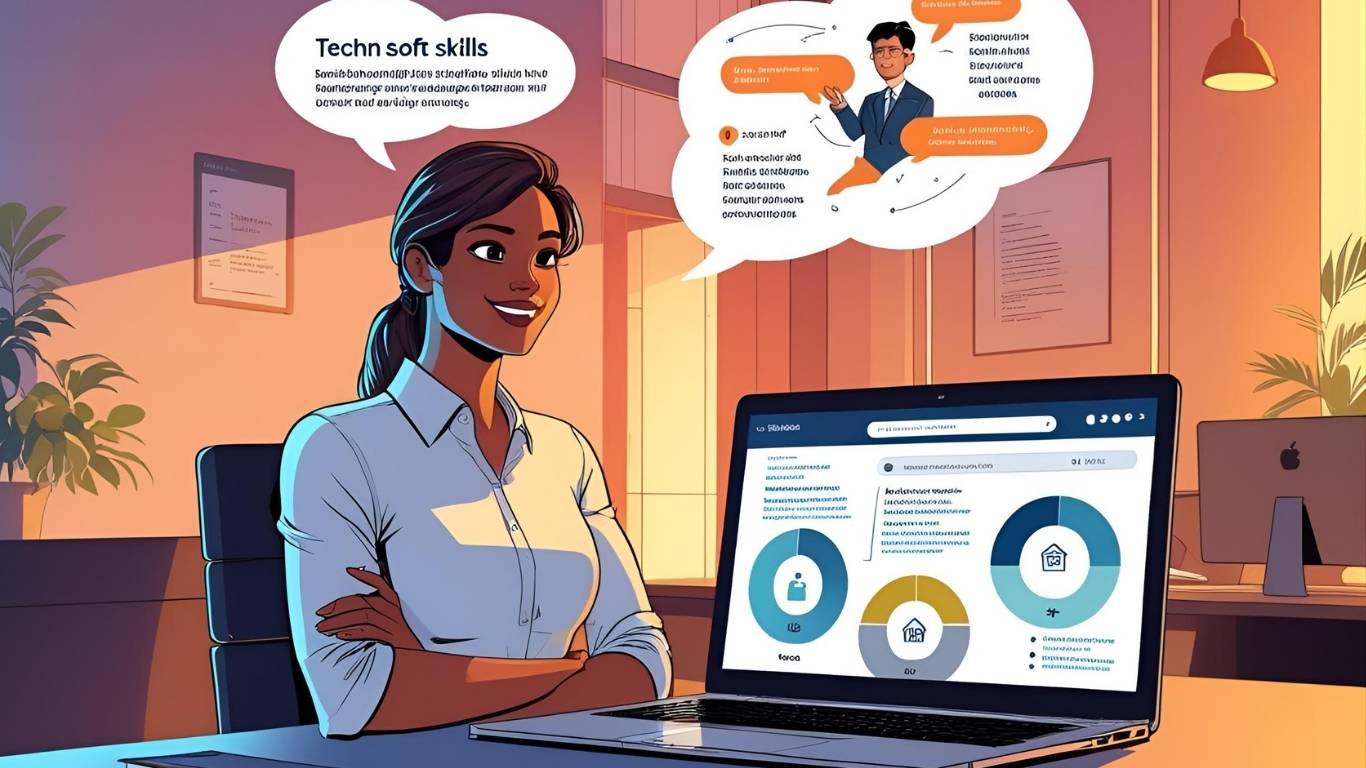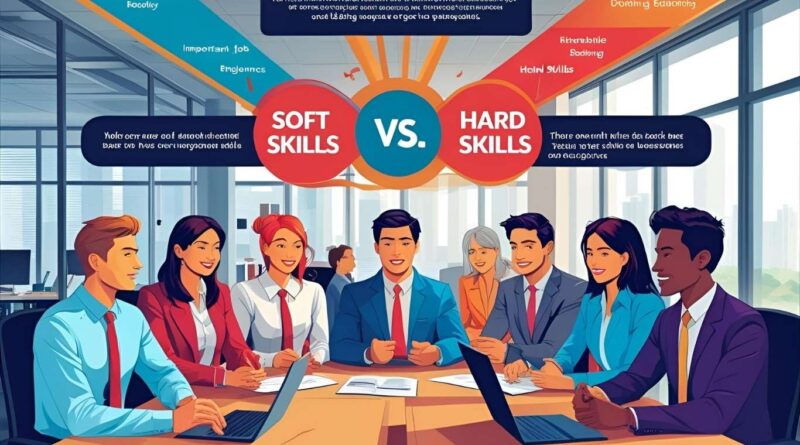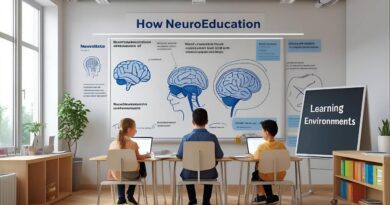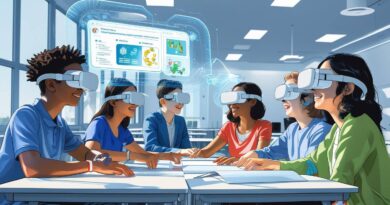Article: Soft Skills vs Hard Skills: What Do Employers Really Want?
Introduction
Ever felt confused about whether to brush up your coding skills or your ability to talk to people in meetings? You’re not alone. In today’s job market, the debate between soft skills and hard skills is hotter than ever. But what do employers really want? Do they care more about your ability to crunch numbers or your talent for leading a team?
Let’s dive into the world of skills and find out what truly gives job seekers the edge.
What Are Hard Skills?
Definition and Characteristics
Hard skills are teachable and measurable abilities. Think of them as the “book smarts” you can learn through schooling, training, or on the job. They’re often job-specific and easy to quantify.
Examples of Hard Skills
Industry-specific skills
From Java programming in tech to financial forecasting in accounting, hard skills differ greatly depending on the industry.
Certifications and technical know-how
Things like Microsoft Excel certification, machine operation, foreign language fluency, or Google Analytics expertise fall under this category.
How Hard Skills Are Acquired
You usually gain hard skills through:
- College or university degrees
- Online courses or bootcamps
- On-the-job training
- Certifications and exams
What Are Soft Skills?
Definition and Characteristics
Soft skills, on the other hand, are your personal traits and social abilities. These are the “people smarts” — how you interact, manage time, and handle stress.
Examples of Soft Skills
Communication
Being able to clearly express ideas, listen actively, and resolve conflicts is crucial in any role.
Teamwork
No one wants to work with a know-it-all. Collaborating with others smoothly is a highly valued skill.
Time management
Meeting deadlines without losing your cool? That’s a soft skill, too.
How Soft Skills Are Developed
Soft skills are often cultivated through:
- Life experience
- Feedback and self-awareness
- Mentorship and leadership roles
- Group projects and team-based work

The Changing Landscape of Hiring
The Role of Automation and AI
Many hard skills are being automated, especially in roles involving data entry, basic analytics, or even customer service. But machines can’t (yet) replicate empathy, adaptability, or creative thinking.
Why Human-Centric Skills Are on the Rise
As the technical gets automated, the human becomes more valuable. Skills like emotional intelligence, critical thinking, and adaptability are rising stars.
Employer Preferences: What the Research Says
Surveys and Industry Reports
According to a LinkedIn report, 92% of talent professionals and hiring managers say soft skills matter as much or more than hard skills.
Real-World Hiring Trends
Employers now look for a balance — they want someone who can do the job and work well with others. A brilliant coder who can’t communicate is less valuable than a good coder who’s a team player.
How Soft Skills and Hard Skills Complement Each Other
Creating a Balanced Skill Set
Imagine a cake without frosting — that’s hard skills without soft skills. You need both to make a complete package.
Team Dynamics and Synergy
One person’s hard skill may be another’s soft skill weakness. Strong teams balance each other out — and hiring managers know that.
Industry Breakdown: What Skills Matter Most?
Tech and IT
- Hard skills: coding, cybersecurity, cloud computing
- Soft skills: problem-solving, adaptability, communication
Healthcare
- Hard skills: medical knowledge, patient care techniques
- Soft skills: empathy, teamwork, stress management
Education
- Hard skills: curriculum design, subject expertise
- Soft skills: leadership, patience, communication
Sales and Marketing
- Hard skills: SEO, CRM tools, data analytics
- Soft skills: persuasion, creativity, emotional intelligence
How to Showcase Both Skill Sets to Employers
Resume Tips
- Include both types of skills in different sections
- Use bullet points to highlight results and context (e.g., “Improved team workflow by 25% using Agile”)
Interview Techniques
- Prepare stories that demonstrate both hard and soft skills
- Use the STAR method (Situation, Task, Action, Result) to structure your answers
On-the-Job Performance
- Consistently demonstrate adaptability and initiative
- Document measurable outcomes from your work
How to Improve Your Soft Skills
Online Courses and Workshops
Platforms like Coursera, LinkedIn Learning, and Skillshare offer personal development modules.
Real-Life Practice
Join clubs, take leadership roles, practice public speaking, and actively ask for feedback.
How to Gain More Hard Skills
Certifications
Consider industry-recognized certs like PMP (Project Management), CompTIA (IT), or Google Ads.
Bootcamps and Degrees
Short-term bootcamps offer fast-track learning. Degrees offer depth and recognition.
Mistakes to Avoid in Skill Representation
Overemphasizing One Over the Other
Don’t list 10 certifications but skip mentioning teamwork or communication. Employers notice the imbalance.
Ignoring Transferable Skills
Skills like critical thinking or Excel mastery can cross industries. Highlight them.
The Future of Employability
Lifelong Learning
The job market keeps evolving. Staying sharp with both soft and hard skills is your long-term ticket to success.
Adaptive Skill Sets
Your ability to learn, unlearn, and relearn may just be your most valuable skill of all.
Conclusion
So, soft skills vs hard skills — who wins? The truth is, it’s not a battle. It’s a beautiful blend. Employers want professionals who can not only do the job but thrive within a team, communicate clearly, and adapt on the fly. The future belongs to those who balance both — the thinkers and the doers, the talkers and the technicians.
Want to stand out? Invest in both.
FAQs
1. Why are soft skills harder to teach than hard skills?
Because soft skills are behavior-based and require real-life experience and emotional intelligence, which can’t be taught through textbooks alone.
2. Can soft skills really be measured?
Yes, through behavioral interviews, 360-degree feedback, and peer reviews — though not as easily as hard skills.
3. Do all employers value soft skills equally?
Not always. Some roles prioritize technical expertise, while others lean heavily on interpersonal skills. But in general, most roles require a bit of both.
4. Which soft skills are most in demand in 2025?
Communication, adaptability, emotional intelligence, and critical thinking top the charts.
5. Should I focus more on hard or soft skills for my first job?
Start with mastering the hard skills to land the job, then quickly ramp up your soft skills to thrive and grow in the role.



